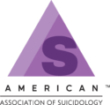Artificial Intelligence Provides a Glimpse at the Declining Mental Health of Healthcare Professionals
Posted on
ER Physician Shares Important Tips for Frontline Workers
Washington, D.C. (May 5, 2020) – In cooperation with the American Association of Suicidology (AAS), Qntfy, an artificial intelligence analytics firm, launched a study looking at the effects of the pandemic on the mental well-being of the public compared to that of healthcare providers. Data on more than 25,000 healthcare professionals and more than 10,000 members of the general population were analyzed using machine learning models for anxiety, depression and suicide risk to develop Qntfy’s patented well-being scores. While the wellbeing of the general population has decreased, the wellbeing of the healthcare providers has decreased even more, which is cause for significant concern.
Qntfy uses its machine learning models to anonymously score social media messages posted by individuals in each category. These data were featured on NBC Nightly News on May 3, 2020.
Tony Wood, Qntfy Co-Founder shared: “These data may seem grim, but thankfully it contains a map of the path forward. Analytics like these can help the helpers, we can flatten the curve of the coming crisis in our behavioral healthcare system if we act now.”
The plot seen below is the average Qntfy well-being score per day for healthcare workers and the general population. Mental health, as it’s measured here, has decreased since the onset of COVID-19 and the associated lockdowns (indicated here by a vertical gray line around March 11th).
(chart © Qntfy Corp. may be reproduced with attribution other rights reserved)
“We’re seeing an increasingly obvious toll of the COVID-19 pandemic on the mental health of frontline healthcare workers,” said Loice Swisher, an emergency room physician in Philadelphia and a member of the American Association of Suicidology. “Just like we need the appropriate supplies of personal protective equipment (PPE) for physical health/protections, we need the right kinds of mental health PPE. Like gloves, goggles, or masks, there are multiple different ways one can guard one’s mental health. And like with physical PPE, it is important to have it on and know how to use it before it becomes imminently necessary.”
Dr. Swisher recommends the first part of mental health PPE for all healthcare workers should involve developing a Personal Crisis Management Plan (PCMP). This is a version of a safety plan, which has been well established in suicide prevention crisis intervention services, but adapted with the needs of healthcare professionals in mind. There are also smartphone apps that include these features, like the Virtual Hope Box (Apple, Google).
Secondly, Dr. Swisher suggests healthcare workers who might find themselves at risk for a crisis to develop self-care strategies that focus on the following:
- Connectedness – Maintain personal relationships. Identify three people you can call.
- Calling or Purpose – Develop a “sunshine file” of great cases, thank you notes, pictures, or anything else that is important to you.
- Compassion – Intentionally develop skills of mindfulness and self-compassion. Engage in curiosity, creativity, generosity, thankfulness, and wonder.
Finally, Dr. Swisher recommends these resources from the Council of Residency Directors in Emergency Medicine. Crisis Text Line has also established a program for frontline workers. More resources, as well as a tool to immediately find the closest crisis services can be found at covidmentalhealthsupport.org.
AAS is dedicated to continue working with its partners, members, and subject matter experts to respond to this changing crisis by providing life-saving resources with real outcomes.
For the Media: Responsible reporting on suicide, including stories of hope and resilience, can prevent more suicides. Please visit the Suicide Reporting Recommendations for more information.
About AAS: The American Association of Suicidology is the world’s largest membership-based suicide prevention organization. Founded in 1968 by Edwin S. Shneidman, PhD, AAS promotes the research of suicide and its prevention, public awareness programs, public education and training for professionals and volunteers. The membership of AAS includes mental health and public health professionals, researchers, suicide prevention and crisis intervention centers, school districts, crisis center volunteers, survivors of suicide loss, attempt survivors, and a variety of laypersons who have in interest in suicide prevention. You can learn more about AAS at www.suicidology.org.
About Qntfy: Qntfy is a Boston based AI analytics company. Founded in 2014, Qntfy is dedicated to the intersection of machine learning and behavioral science. As part of their mental health mission, they help university researchers collect and examine social and wearable data from participants who opt-in to the analysis through the OurDataHelps.org project. They also operate a streaming analytics platform called CAP that provides always-on access to insights (like the above) to enterprise, nonprofit, and government customers.
###
Related Blogs
American Association of Suicidology Announces Winners of the...
WASHINGTON, D.C. – December 22, 2025 – The American Association of Suicidology (AAS) is proud to announce the winners of the 2025 Paul G. Quinnett Lived Experience Writing Competition. This annual...
To the AAS Community
Washington, D.C., October 23, 2025- To the AAS Community: As many of you already know, Jody Gottlieb passed away unexpectedly on October 1, 2025. In the immediate aftermath of this sad and shocking news, we focuse...
Honoring the Life and Legacy of Jody Gottlieb
Washington, D.C., October 3, 2025- It is with profound sadness that we share the unexpected passing of Jody Gottlieb due to an unexpected medical condition. Jody was not only an accomplished professional, but also a...
